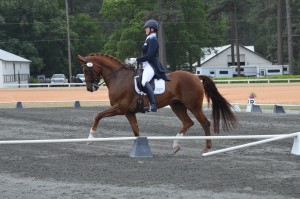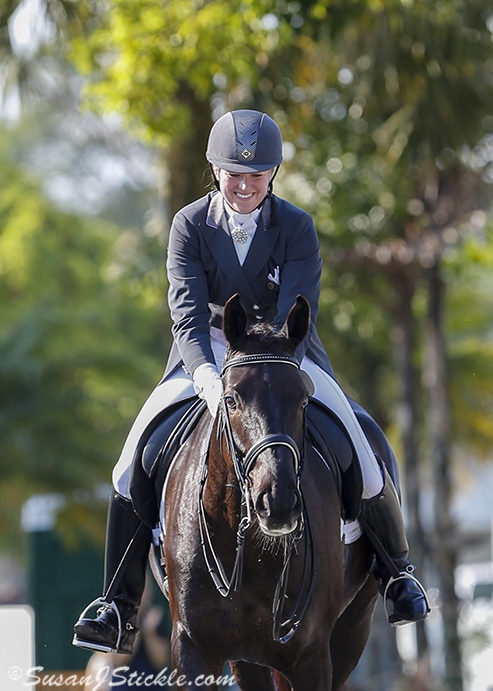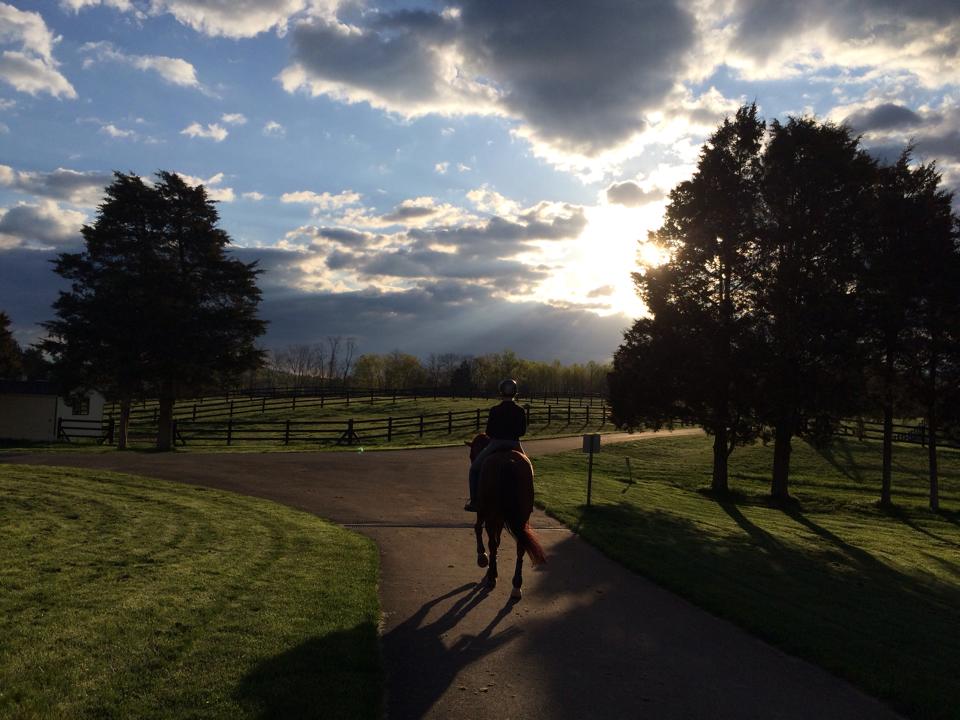Come Learn With Us! May 12 2015 newsletter
Read all about our exciting upcoming events (including our first-ever Adult Camp!) plus BIG results from local competitions (including Lauren and Ella getting back into the Grand Prix ring!), logowear and other fun. See our May 12, 2015 newsletter here.


 I had the most incredible ride yesterday. I’m pretty much on top of everything for the Grand Prix on Ella, but there’s a gear in the passage I’m still not 100 percent confident in, and in my last lesson with Michael he put me on a 20-meter circle in passage and had me just play with it—what happens when I use my leg like this, what happens when I use my seat like that, until I cultivated the passage I wanted.
I had the most incredible ride yesterday. I’m pretty much on top of everything for the Grand Prix on Ella, but there’s a gear in the passage I’m still not 100 percent confident in, and in my last lesson with Michael he put me on a 20-meter circle in passage and had me just play with it—what happens when I use my leg like this, what happens when I use my seat like that, until I cultivated the passage I wanted.
 A month home from Florida and I’m finally feeling settled in. That month wasn’t exactly quiet—a show, the World Cup Final, a clinic with Michael, a Pony Club rating, and moving out of my house in town and back to the farm—and I just felt very scattered. Being in one place for a while sounds pretty great.
A month home from Florida and I’m finally feeling settled in. That month wasn’t exactly quiet—a show, the World Cup Final, a clinic with Michael, a Pony Club rating, and moving out of my house in town and back to the farm—and I just felt very scattered. Being in one place for a while sounds pretty great.